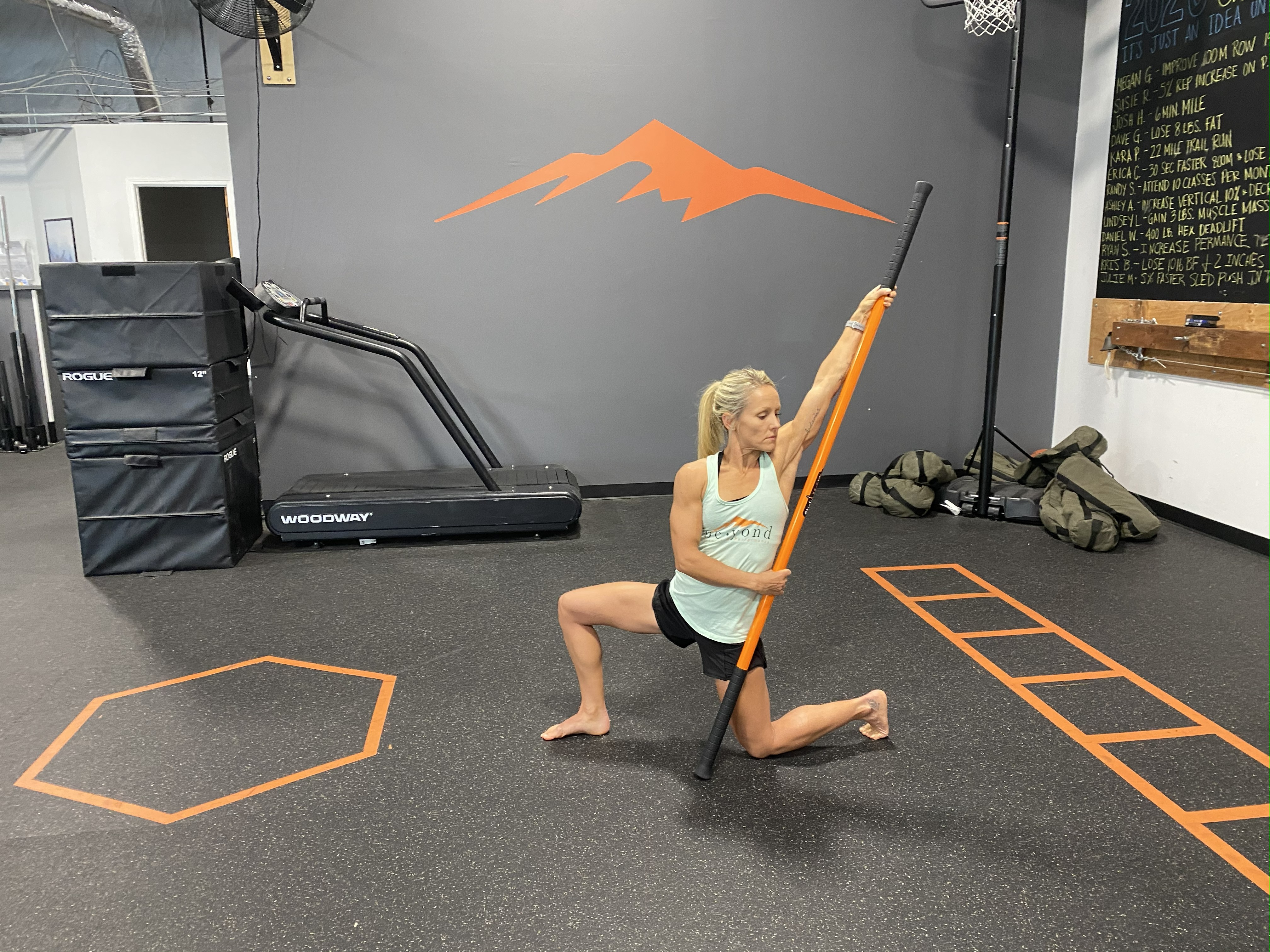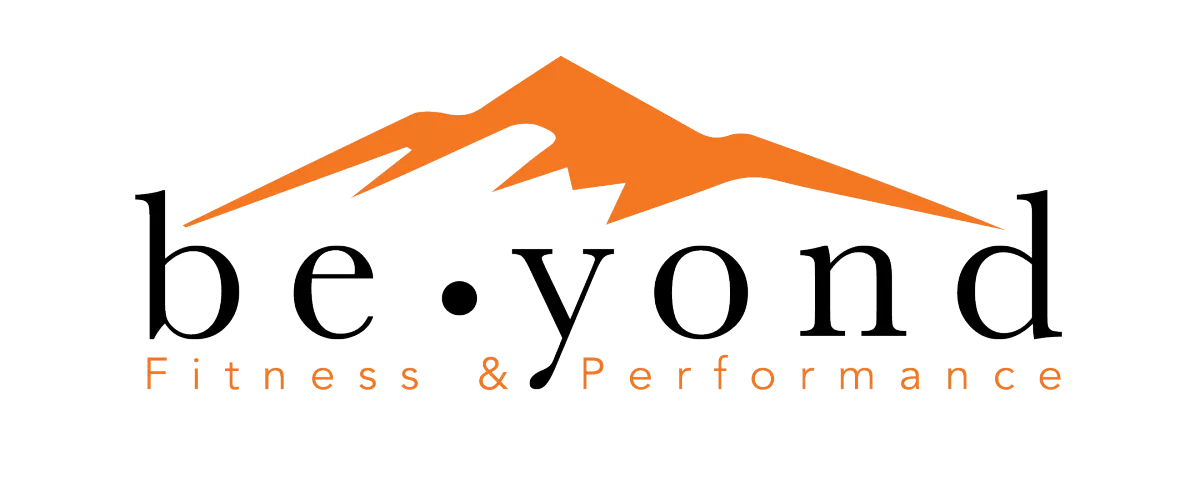Beyond Blog

5 Signs Your Body Is Asking for Recovery (And How to Listen)
You know the feeling.
You're supposed to work out today. It's on the schedule. You've committed to showing up consistently—and you're proud of that commitment.
But your body feels... off. Heavy. Tired. Maybe a little achy.
And then the voice in your head starts: "You're just being lazy. You'll feel better once you get moving. Everyone else is showing up—why can't you?"
So you push through. You ignore the signals. You show up and grind through another session, telling yourself that rest is for quitters.
Here's the truth most fitness culture won't tell you: Sometimes rest is the most productive thing you can do.
Your body doesn't get stronger during workouts. It gets stronger during recovery. And if you're not listening to the signals your body sends when it needs rest, you're not just slowing your progress—you're setting yourself up for burnout, injury, or worse.
Let's talk about the five signs your body is asking for recovery—and why listening to them is one of the smartest things you can do for your long-term fitness.
Sign #1: You're Persistently Fatigued
We're not talking about being a little tired after a hard workout. We're talking about the kind of fatigue that doesn't go away after a good night's sleep.
You wake up feeling drained. Your energy never fully rebounds throughout the day. Even simple tasks feel harder than they should.
What's happening: When you train consistently without adequate recovery, your nervous system stays in a stressed state. Your body is working overtime to repair muscle tissue, regulate hormones, and restore energy—and it's falling behind.
Persistent fatigue is your body waving a red flag: "I need a break."
What to do: Take a full rest day. Not an "active recovery" day where you still push yourself—an actual rest day where you focus on sleep, hydration, and letting your body catch up.
If the fatigue continues beyond a few days, it might be time to reassess your training volume or talk to your coach about adjusting your program.
Sign #2: Soreness That Won't Go Away
A little muscle soreness after a tough workout? Normal. That's your body adapting to the work you're doing.
But soreness that lingers for days, or that shows up in the same spots over and over? That's different.
What's happening: When muscles don't get enough time to fully recover between sessions, they stay in a partially damaged state. You're breaking them down faster than they can rebuild.
Over time, this leads to chronic inflammation, increased injury risk, and workouts that feel harder than they should.
What to do: Give those sore areas real recovery time. If your legs are still toast from Tuesday's workout, don't hit them hard again on Thursday just because the program says so.
Use recovery tools like our infrared sauna to promote blood flow and reduce inflammation, or try the cold plunge to help your muscles repair faster. And consider adding Stick Mobility to your routine—it's specifically designed to improve recovery and keep your body moving well.
Sign #3: Your Performance Is Declining
You're showing up. You're putting in the effort. But your workouts feel harder, your weights feel heavier, and your times are slower.
You can't hit the same numbers you were hitting two weeks ago—even though you've been training consistently.
What's happening: Declining performance is one of the clearest signs of overtraining or inadequate recovery. Your body hasn't had enough time to adapt to the stress you're placing on it, so instead of getting stronger, you're getting weaker.
This is frustrating—especially for adults who are already working hard to make time for fitness. But pushing through will only make it worse.
What to do: Take a step back. Reduce your training intensity or volume for a few days. Focus on movement quality over effort. Give your nervous system and muscles time to recover.
You'll come back stronger if you give yourself the space to rebuild.
Sign #4: You're Irritable, Anxious, or Unmotivated
Physical recovery isn't just about your muscles—it's about your entire system, including your brain.
If you're noticing mood changes—snapping at people more easily, feeling anxious for no clear reason, or dreading workouts that used to energize you—your body is telling you something.
What's happening: Overtraining stresses your central nervous system and disrupts hormones like cortisol and serotonin. When your body is in a chronically stressed state, your mood suffers.
You might think, "I'm just stressed from work," or "I'm not sleeping well because of life stuff." And that might be true—but training without recovery compounds the problem.
What to do: Rest isn't just physical—it's mental and emotional too. Take a day off from intense training and do something that feels restorative. Walk outside. Stretch. Spend time in the sauna. Sleep in.
Your body and mind need a chance to reset.
Sign #5: Your Sleep Is Suffering
This one catches people off guard.
You'd think that training hard would make you sleep better—and sometimes it does. But if you're overtraining or under-recovering, the opposite happens.
You lie awake at night, mind racing. You fall asleep but wake up multiple times. You wake up feeling like you barely slept at all.
What's happening: When your body is overstressed from training, your nervous system stays in fight-or-flight mode. Cortisol levels stay elevated, making it harder to fall asleep and stay asleep.
Poor sleep then makes recovery even harder—creating a vicious cycle of fatigue, declining performance, and frustration.
What to do: Prioritize sleep like it's part of your training program—because it is. Create a wind-down routine. Limit screen time before bed. Keep your room cool and dark.
And if you're consistently struggling with sleep despite good habits, it's a strong sign you need more recovery in your training schedule.
The Truth About Recovery
Here's what most people get wrong: Recovery isn't the opposite of training. It's part of training.
Your body doesn't get stronger during your workout. It gets stronger after your workout—when you rest, sleep, and let the adaptation happen.
If you're constantly pushing without recovering, you're spinning your wheels. You're working hard but not making progress. And eventually, something breaks.
The adults who make the most progress over the long term aren't the ones who train the hardest every single day. They're the ones who train consistently and recover intentionally.
They listen to their bodies. They take rest days without guilt. They use recovery tools. They understand that rest isn't laziness—it's strategy.
How to Build Recovery Into Your Routine
1. Plan rest days like you plan workout days Put them on your calendar. Treat them as non-negotiable. One or two full rest days per week is a minimum for most adults.
2. Use active recovery strategically Light movement—walking, easy stretching, Stick Mobility—can help blood flow and recovery without stressing your system. But it's not a replacement for full rest.
3. Pay attention to how you feel If you're hitting multiple signs from this list, take an extra rest day. Your body is smarter than your training plan.
4. Use recovery tools Infrared sauna, cold plunge, compression boots—these aren't luxuries. They're tools that help your body recover faster and more completely. We offer all of them at Beyond Fitness because we know they work.
5. Sleep like your progress depends on it—because it does Aim for 7-9 hours per night. Protect your sleep like you protect your training time.
The Bottom Line
If your body is sending signals—persistent fatigue, lingering soreness, declining performance, mood changes, or poor sleep—don't ignore them.
You're not being weak. You're not being lazy. You're being smart.
Recovery is where progress happens. And the adults who understand that are the ones who stay strong, capable, and consistent for decades—not just months.
Your body is asking for rest. The question is: are you listening?
Ready to Prioritize Recovery?
At Beyond Fitness, we don't just train hard—we recover smart.
That's why we offer:
Infrared Sauna to reduce inflammation and promote healing
Cold Plunge to speed up muscle recovery and reduce soreness
Compression Boots to improve circulation and reduce fatigue
Stick Mobility classes to enhance flexibility, reduce tension, and improve movement quality
Recovery isn't a luxury—it's essential for sustainable strength and longevity.
Learn more about our recovery services and start building rest into your routine the right way.
ABOUT US
Beyond Fitness and Performance is a functional fitness gym that helps people of ALL fitness levels reach a their fitness goals in a safe, challenging, and effective manner in our communities of Littleton, Highlands Ranch, and Sterling Ranch.
HOURS OF OPERATION
Mon-Fri: 5am - 6pm
Sat 8am - 10pm
QUESTIONS?
Beyond Fitness and Performance
9150 Commerce Center Circle Ste.200
Highlands Ranch, Co, 80129
720-531-5500
Copyright ©2023 All rights reserved
Powered by Zen Planner


